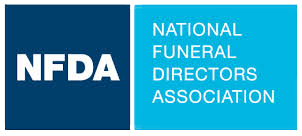When we think of funeral directors, our first thought may be of someone who organizes and oversees funeral services. However, the role of a funeral director encompasses much more, making them indispensable to individuals and families during one of life’s most challenging times. This article sheds light on the often underappreciated and misunderstood profession of funeral directing, offering insight into their comprehensive responsibilities and the vital support they provide to the bereaved.
The Compassionate Coordinator
At the core of their profession, funeral directors serve as coordinators for all aspects of the funeral service. This includes arranging the visitation, funeral ceremony, burial, or cremation. Their duties are akin to those of an event planner, requiring meticulous attention to detail and an ability to manage multiple facets of the service simultaneously. They liaise with florists, clergy, cemetery officials, and other service providers, ensuring that each element of the funeral respects the family’s wishes and honors the life of the deceased.
Emotional Support and Guidance
Funeral directors often step into a role similar to that of a counselor, providing emotional support to grieving families. They possess a deep understanding of the grieving process and offer a compassionate ear to those who are mourning. By offering comfort and reassurance, they help families navigate their emotions and make informed decisions during a highly emotional time.
Legal and Administrative Expertise
Navigating the legalities surrounding death is a complex process that many families are unprepared for. Funeral directors assist with obtaining death certificates, filing necessary paperwork, and ensuring compliance with local and federal regulations. Their expertise extends to advising families on estate matters and guiding them through the administrative tasks that follow a loved one’s passing.
Customizing the Farewell
One of the most significant responsibilities of a funeral director is helping families create a personalized and meaningful tribute to their loved one. This can involve discussing various service options, suggesting ways to incorporate personal touches, and advising on the selection of caskets, urns, or other memorial products. Funeral directors are adept at tailoring services to reflect the unique life of the deceased, whether through traditional rituals, thematic elements, or incorporating specific wishes of the family or the departed.
Educator and Resource
For many, the details and options involved in planning a funeral are unfamiliar territory. Funeral directors serve as educators, providing families with information on different types of services, burial options, and the benefits of pre-planning. They also offer resources for grief support, connecting individuals with support groups, counselors, or community services that can aid in the healing process.
Ensuring a Respectful Departure
Beyond the visible duties, funeral directors are responsible for the care and preparation of the deceased. This can include embalming, dressing, and cosmetically preparing the body for visitation, ensuring the individual is treated with dignity and respect at all times.In essence, funeral directors wear many hats, blending the roles of coordinator, counselor, legal advisor, and more to support families during a time of loss. Their work goes beyond the logistics of funeral planning, touching the lives of the bereaved with empathy, respect, and a dedication to honoring the memory of those who have passed. By understanding the breadth of their responsibilities, we can better appreciate the critical role funeral directors play in our communities, guiding us through one of life’s most profound transitions.












Really great and compassionate people!